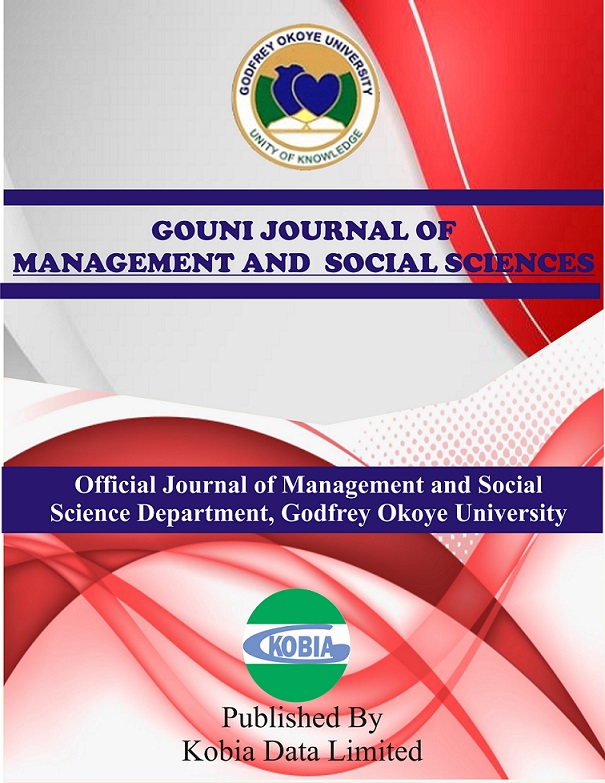SEPARATIST MOVEMENTS, CONFLICTS AND INSECURITY IN SOUTH EAST NIGERIA
Abstract
This work examined how separatist movements occasioned conflicts and their attendant security challenges in Nigeria, especially in the South East. The theoretical framework adopted for this study is the social identity theory. The study adopted qualitative research. The sources of data were secondary sources and the method of data analysis was content analysis. The study found hat the factors that occasioned separatist agitations for self- determination in Nigeria and South East in particular are; poor governance, ostracism, religion, ethnicity, banditry and terrorism, political and economic marginalization etc. The study also found that agitations for self- determination by separatist movements in the South East have caused serious security challenges in the region. There have been serious clashes between security personnel and groups affiliated to Indigenous People of Biafra (IPOB). More than that groups such as unknown gun men and the Eastern Security Network have in numerous instances burnt down police stations and killed numerous security personnel (mostly police men) in the region. Furthermore, they have destroyed and burnt down numerous government facilities and inflicted harm on innocent citizens who fail to comply with their sit at home order. From the findings of the study, the study recommended that the root causes of the problem as highlighted in the work should be addressed. When this is done, security challenges confronting the region would be resolved.Authors who publish with this journal agree to the following terms:
Authors grant the journal copyright
Authors are able to enter into separate, additional contractual arrangements for the non-exclusive distribution of the journal's published version of the work (e.g., post it to an institutional repository or publish it in a book), with an acknowledgement of its initial publication in this journal.
Authors are permitted and encouraged to post their work online (e.g., in institutional repositories or on their website) prior to and during the submission process, as it can lead to productive exchanges, as well as earlier and greater citation of published work.



